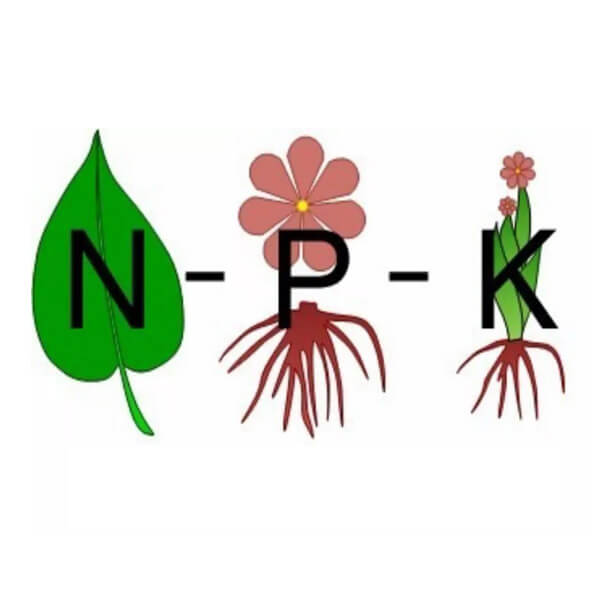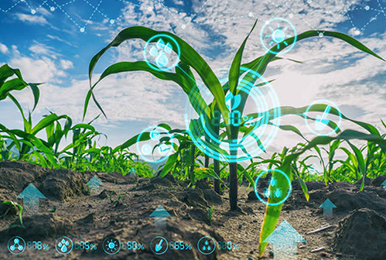What is soil NPK?
Just as sugar, fat, and protein are the three major nutrients for humans and animals. Soil nitrogen, phosphorus, and potassium are the three major nutrients required for plant production. Therefore, reasonable nitrogen, phosphorus and potassium elements can make your garden lively.


N (Nitrogen)
In soil npk, N stands for nitrogen. It is the most abundant element in the air, and most of the nitrogen exists in the air in elemental form. However, nitrogen in the air cannot be directly absorbed by plants. We need to add organic matter to the soil so that nitrogen can penetrate into the soil and be absorbed by plants. Nitrogen is a component of chlorophyll and is closely related to photosynthesis. It is responsible for the growth of plant leaves. When the plant lacks nitrogen, the growth of the plant slows down, the rhizome is short, the leaves are yellow and small. The long-term lack of nitrogen can also cause the leaves to fall off early. When growing green plants and vegetables, it is usually necessary to regularly supplement nitrogen.
Of course, it is not good to over-supplement soil nitrogen. A large amount of nitrogen often causes plant cells to grow too large, leaves become soft, and are easily attacked by pathogens. Too much nitrogen also consumes a lot of carbohydrates, which will affect the growth of plants.
In soil npk, P stands for phosphorus. Phosphorus can improve the ability of plants to adapt to external environmental conditions and help plants withstand severe cold winters. During the growth period, phosphorus is mainly concentrated in the shoots and root tips, so we can see that the plant has a clear top advantage. During the reproductive period, phosphorus will be transferred to the seeds or fruits. If the plant lacks phosphorus, the phosphorus in the body will be preferentially supplied to the growth center, so there will be symptoms of lack of phosphorus in the old leaves at this time.


In soil npk, K stands for potassium. Potassium is absorbed by plant roots in the form of K+ and exists in plants in the same form. The nutritional effects of potassium on plants are manifold. Potassium is an element necessary for many chemical reactions in plants. It helps plants absorb and balance other elements, regulate the circulation of water and air. Potassium can also help plants produce and store starch, sugar, oil and protein, and enhance their drought and disease resistance. Adding potassium fertilizer in the later stage of plant growth can make the fruit bigger and the color better.
The lack of potassium perform in plants may be:
- Yellowing of leaf tips and leaf edges
- Plants have low drought and cold resistance
- Plants get sick easily
- Plant stems are weak, easy to fall, and easy to break

Why need to measure soil NPK?

The most common reason for monitoring soil nitrogen, phosphorus and potassium content is to measure the availability of plant nutrients in the soil. So as to carry out scientific fertilization. We all know that plants need a certain level of these soil nutrients, and a reliable way to understand the composition of the soil is to conduct a soil test.
According to the measurement results, the nutrient elements required by the plants are supplemented in a targeted manner. What elements are missing in the plants will be supplemented, and as much as they are lacking, a balanced supply of various nutrients will be achieved. So that the crops can reach high yields and the flowers in the garden are more beautiful.